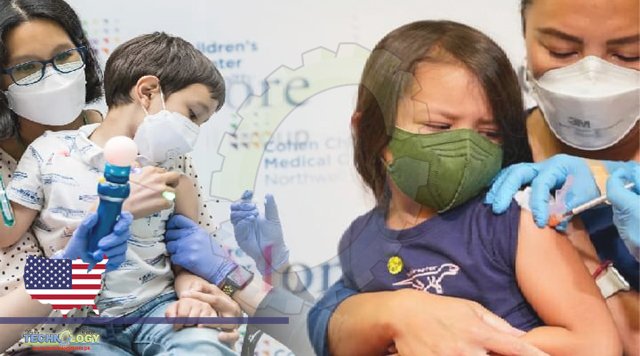Covid vaccination rates in US, Biden’s recent announcement that the pandemic is ending could slow process further, as parents question the necessity of shots

It’s been three months since the US authorized Covid vaccines for kids under five, yet uptake in this group has been extremely low. Meanwhile, Joe Biden said on Monday that the pandemic is ending – a message that could result in a continued lag. More than 1,400 children have died from Covid in the US, and at least 533 of those deaths have been in children under five, according to the US Centers for Disease Control and Prevention (CDC). That makes Covid one of the top 10 causes of child mortality in the country. Yet only about 6% of kids under five have had their first shots, according to data from the CDC – the lowest rate by far of any age demographic. A recent study demonstrates clearly that Covid vaccines save kids’ lives. Covid vaccination rates in US, An expansive study followed children aged five to 11, finding that Pfizer’s mRNA vaccine was effective at preventing infection and incredibly protective against hospitalization and death. So far, 1.19 million children under five have received at least one Covid shot, a total vaccination rate of 6.2%. This age group became eligible for the shots on 18 June, a year and a half after they were authorized for adults, but researchers found that vaccinations peaked within two weeks. About four in 10 kids aged five to 11 are vaccinated, a rate that stayed fairly flat through the summer. In comparison, about three in four adults are vaccinated.
Even as some children return to school – a time when many families visit their doctors – rates have been slow to rise. The reasons have to do with hesitations over the safety, effectiveness and necessity of vaccines, as well as limited access. esitancy over the safety and efficacy of the vaccines has been a major driver in the lag. Many families are concerned about the newness, side-effects, and overall safety of the vaccines, according to a survey from the Kaiser Family Foundation (KFF) in July. “One of the most commonly cited things was the sense that the vaccine is too new, that there’s not been enough testing, especially for young children, and that more research is needed,” said Lunna Lopes, a senior survey analyst at KFF. Covid vaccination rates in US, There is also the “common theme of not feeling like their child needs it, and just not being worried about Covid-19 as a threat to their child”, Lopes said. That’s largely because many parents absorbed the message that Covid doesn’t affect children, said Jessica Calarco, an associate professor of sociology at Indiana University who started tracking families’ attitudes toward vaccines in 2018. Parents reported that they heard from mainstream news outlets, national agencies like the CDC and parenting advice figures that kids are unlikely to contract, transmit or get seriously ill from Covid-19. “That laid the groundwork for parents – especially white parents with children who didn’t have pre-existing conditions, that didn’t have any high-risk household members – to feel confident sending their kids back to school and back to childcare,”
Source: This news is originally published by theguardian